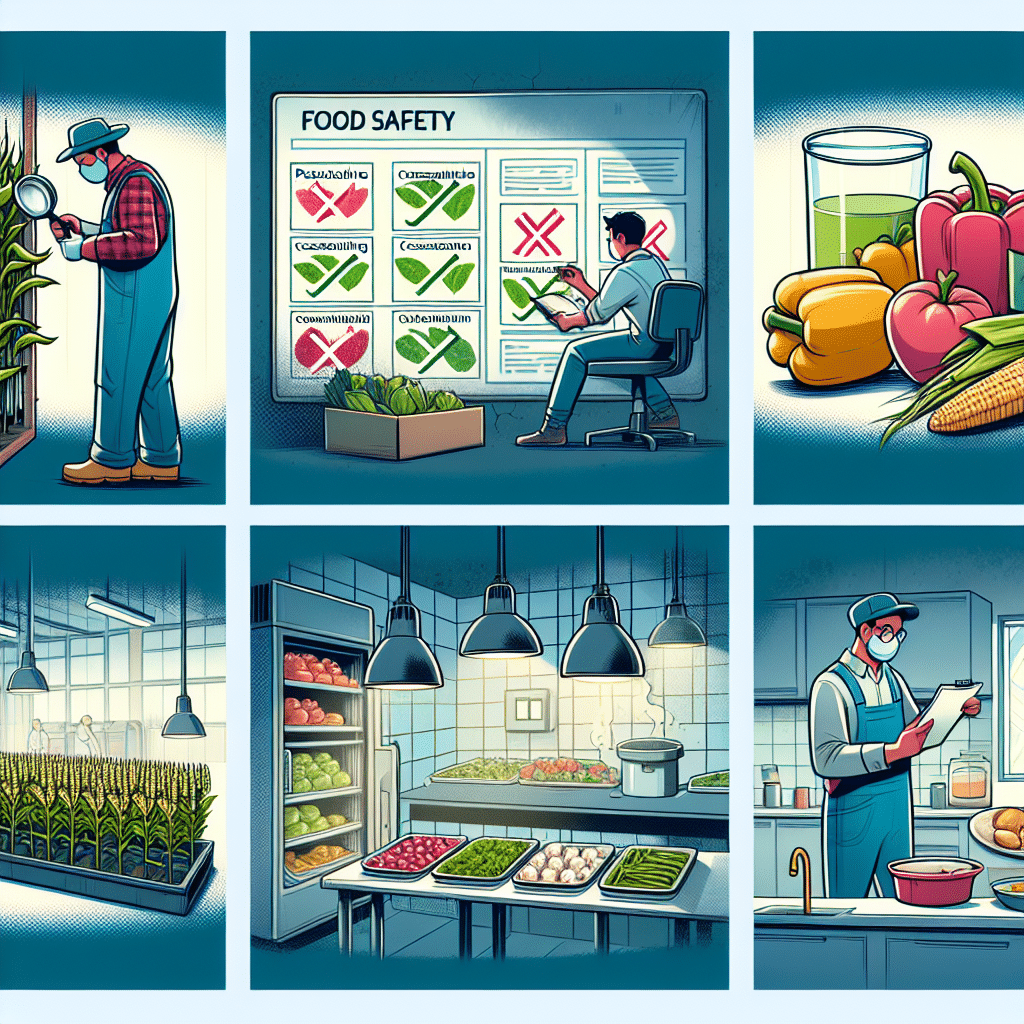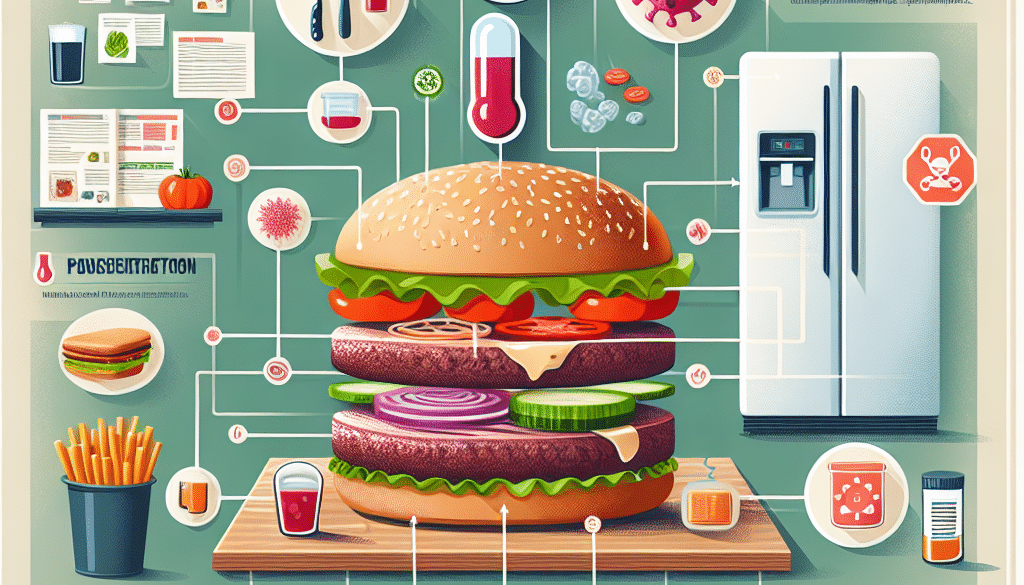What Are the Food Safety Challenges of Plant-Based Food?
-
Table of Contents
- Plant-Based Food Safety Challenges: Navigating the Risks
- Understanding Plant-Based Food Safety
- Contamination Risks in Plant-Based Foods
- Challenges in Plant-Based Food Production
- Regulatory and Labeling Challenges
- Ensuring Food Safety in Plant-Based Diets
- Statistics Highlighting the Importance of Food Safety
- Conclusion: The Path Forward for Plant-Based Food Safety
- ETprotein: Your Trusted Source for High-Quality Plant Proteins
Plant-Based Food Safety Challenges: Navigating the Risks

The rise of plant-based diets has been meteoric in recent years, driven by consumer interest in health, environmental sustainability, and animal welfare. However, as the demand for plant-based foods grows, so do concerns about food safety. Understanding the unique challenges associated with plant-based food safety is crucial for consumers, producers, and regulators alike.
Understanding Plant-Based Food Safety
Plant-based foods, while often considered inherently safer than animal products, are not without their risks. From farm to table, these products can be exposed to a range of contaminants and pathogens that pose health risks to consumers.
Contamination Risks in Plant-Based Foods
Plant-based foods can become contaminated at various stages of production and processing. Here are some of the key contamination risks:
- Microbial Contamination: Pathogens like E. coli, Salmonella, and Listeria can contaminate plant-based foods through soil, water, or cross-contamination during processing.
- Pesticide Residues: The use of pesticides in crop production can lead to residues on plant-based foods, which may pose health risks if not properly managed.
- Heavy Metals: Plants can absorb heavy metals from the soil, leading to potential accumulation in plant-based products.
- Allergens: Cross-contamination with allergens during processing is a significant concern, especially as many plant-based products are marketed as allergen-free.
Challenges in Plant-Based Food Production
Plant-based food production involves unique challenges that can impact food safety:
- Complex Supply Chains: The global nature of supply chains can make traceability and accountability difficult, increasing the risk of contamination.
- Novel Ingredients: Many plant-based products contain new or uncommon ingredients, which may lack established safety protocols.
- Processing Techniques: High-tech processing methods, such as extrusion or fermentation, require strict controls to prevent contamination.
Regulatory and Labeling Challenges
Regulatory frameworks for plant-based foods are still evolving, leading to potential gaps in oversight. Additionally, labeling requirements may not always provide clear information about potential allergens or processing methods.
Ensuring Food Safety in Plant-Based Diets
Ensuring the safety of plant-based foods requires a multi-faceted approach:
- Good Agricultural Practices (GAPs): Implementing GAPs can help prevent contamination at the source.
- Robust Testing: Regular testing for pathogens, pesticides, and heavy metals is essential for ensuring safety.
- Supply Chain Transparency: Clear traceability systems can help identify and address contamination sources quickly.
- Consumer Education: Educating consumers about proper storage and preparation can reduce the risk of foodborne illness.
Statistics Highlighting the Importance of Food Safety
Recent statistics underscore the importance of food safety in plant-based diets:
- According to the CDC, produce accounts for nearly half of all foodborne illnesses in the United States.
- A study by the FDA found that nearly 10% of domestic and 4% of imported spices were contaminated with Salmonella.
- Research indicates that organic produce may have a higher risk of E. coli contamination due to the use of manure as fertilizer.
Conclusion: The Path Forward for Plant-Based Food Safety
As the plant-based food industry continues to grow, addressing food safety challenges is paramount. By implementing rigorous safety protocols, improving regulatory oversight, and fostering consumer awareness, the industry can ensure that plant-based foods remain a safe and healthy choice for consumers.
ETprotein: Your Trusted Source for High-Quality Plant Proteins
If you’re looking for safe, high-quality plant-based proteins, ETprotein is your go-to source. Their extensive range of organic vegan proteins, including rice, pea, and seed-based options, are produced with the utmost care to ensure safety and quality. With non-GMO, allergen-free products and L-(+)-Ergothioneine purity over 98%, ETprotein caters to various industries, ensuring that your plant-based food products meet the highest safety standards.
About ETprotein:
ETprotein, a reputable protein and L-(+)-Ergothioneine (EGT) Chinese factory manufacturer and supplier, is renowned for producing, stocking, exporting, and delivering the highest quality organic bulk vegan proteins and L-(+)-Ergothioneine. They include Organic rice protein, clear rice protein, pea protein, clear pea protein, watermelon seed protein, pumpkin seed protein, sunflower seed protein, mung bean protein, peanut protein, and L-(+)-Ergothioneine EGT Pharmaceutical grade, L-(+)-Ergothioneine EGT food grade, L-(+)-Ergothioneine EGT cosmetic grade, L-(+)-Ergothioneine EGT reference grade and L-(+)-Ergothioneine EGT standard. Their offerings, characterized by a neutral taste, non-GMO, allergen-free attributes, with L-(+)-Ergothioneine purity over 98%, 99%, cater to a diverse range of industries. They serve nutraceutical, pharmaceutical, cosmeceutical, veterinary, as well as food and beverage finished product distributors, traders, and manufacturers across Europe, USA, Canada, Australia, Thailand, Japan, Korea, Brazil, and Chile, among others.
ETprotein specialization includes exporting and delivering tailor-made protein powder and finished nutritional supplements. Their extensive product range covers sectors like Food and Beverage, Sports Nutrition, Weight Management, Dietary Supplements, Health and Wellness Products, and Infant Formula, ensuring comprehensive solutions to meet all your protein needs.
As a trusted company by leading global food and beverage brands and Fortune 500 companies, ETprotein reinforces China’s reputation in the global arena. For more information or to sample their products, please contact them and email sales(at)ETprotein.com today.














